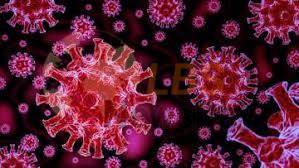Dec 30, 2021
The World Health Organization (WHO) has expressed optimism that 2022 may be the year the world ends the acute stage of the COVID-19 pandemic.
The new global threat emerged two years ago, killing 1.8 million people in 2020 and 3.5 million in 2021. Since then, the disease has spread across the globe and produced multiple variants, the latest of which is Omicron – a variant driving up cases across the world, and leaving millions of people with long-term consequences from the virus.
However, Mike Ryan, the Executive Director of the WHO’s health emergencies programme, says that although the coronavirus will not disappear, its acute phase could end next year if every country ends up vaccinating at least 70 per cent of its population. He added that getting the most vulnerable vaccinated is key in ending the acute phase of the pandemic.
“The virus itself is very unlikely to go away completely and will probably settle down into a pattern of transmission (low-level) causing occasional outbreaks in under-vaccinated populations, and we hope that is the end game here,” he said.
“By getting the vaccine equity equation right, by continuing to implement the measures we have at our disposal, by continuing to protect our most vulnerable … we can bring the acute phase of the pandemic, the phase of death and hospitalization, to an end.”
Earlier in the year, during meetings of the world’s biggest economies – the G7 and G20, the WHO challenged leaders to vaccinate 40 per cent of their populations by the end of 2021 and 70 per cent by the middle of 2022. With only a couple of days left in the year, 92 out of 194 Member States missed the target.
Dr Tedros Adhanom Ghebreyesus, the Director-General of the World Health Organisation says that if that target is reached by then, the world could start to move on from the current phase of the pandemic.
“I still remain optimistic that this can be the year we could not only end the acute stage of the pandemic but also chart a path to stronger health security. I want governments, industry and civil society to work with us on a campaign that targets 70 per cent vaccine coverage in every country by the start of July,” he said.
Tedros made the comments at a WHO COVID-19 update on Wednesday, just two days before the world hits the two-year anniversary of the discovery of the coronavirus. He told the meeting that they are “highly concerned” that the more transmissible Omicron, circulating at the same time as Delta, is leading to “a tsunami of cases; leading to spikes in hospitalizations and deaths.
Tedros attributed this to low-income countries receiving a limited supply for most of the year and then subsequent vaccines arriving close to expiry, without key parts, like syringes. “Forty per cent was doable. It’s not only a moral shame, but it also cost lives and provided the virus with opportunities to circulate unchecked and mutate”, he said.
The WHO chief warned that boosters in rich countries could cause low-income countries to again fall short and called on leaders of wealthy countries and manufacturers to work together to reach the 70 per cent goal by July.
“This is the time to rise above short-term nationalism and protect populations and economies against future variants by ending global vaccine inequity”, he said. “We have 185 days to the finish line of achieving 70 per cent by the start of July 2022. And the clock starts now”. Tedros acknowledged that beating the new health threat would require science, solutions, and solidarity.
While elaborating on some successes, such as the development of new vaccines, which he said “represent a scientific masterclass”, the WHO official lamented that politics too often triumphed over solidarity.
“Populism, narrow nationalism and hoarding of health tools, including masks, therapeutics, diagnostics and vaccines, by a small number of countries undermined equity, and created the ideal conditions for the emergence of new variants”, Tedros said.
Source: URN



